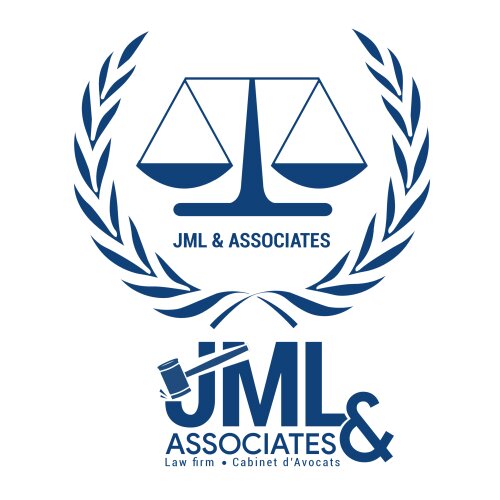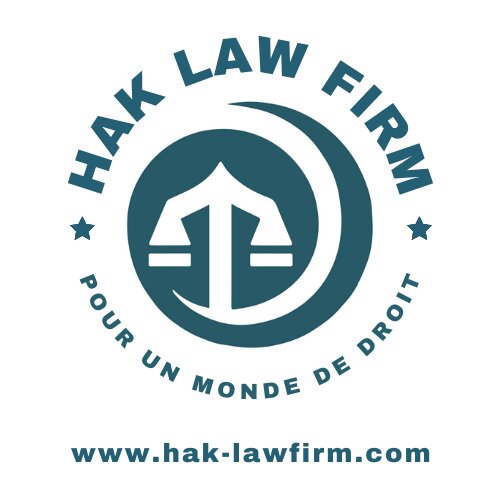Best Toxic Mold Lawyers in Kinshasa
Share your needs with us, get contacted by law firms.
Free. Takes 2 min.
List of the best lawyers in Kinshasa, DR Congo
About Toxic Mold Law in Kinshasa, DR Congo:
Toxic mold, also known as black mold or mold that produces mycotoxins, can be a serious health hazard when present in homes or other buildings. In Kinshasa, DR Congo, individuals who are exposed to toxic mold may seek legal assistance to protect their rights and seek compensation for any damages incurred.
Why You May Need a Lawyer:
You may need a lawyer for toxic mold issues in Kinshasa if you have experienced health problems due to mold exposure, if your property has been damaged by mold, or if you are facing disputes with landlords or insurers regarding mold-related issues. A lawyer can help you navigate the legal complexities and ensure that your rights are protected.
Local Laws Overview:
In Kinshasa, DR Congo, the laws related to toxic mold may fall under general property law, tenant rights, health and safety regulations, and environmental laws. It is important to understand your rights and obligations under these laws when dealing with toxic mold issues.
Frequently Asked Questions:
1. What are the health risks associated with exposure to toxic mold?
Exposure to toxic mold can cause respiratory problems, allergic reactions, skin irritation, and other health issues.
2. Who is responsible for addressing mold issues in rental properties?
Landlords are generally responsible for maintaining rental properties and addressing mold issues that may arise.
3. How can I prove that mold is toxic and harmful to my health?
You may need to conduct mold testing and consult with medical professionals to establish the link between mold exposure and your health problems.
4. Can I sue my landlord for mold-related damages?
You may have grounds to take legal action against your landlord if they have failed to address mold issues in a timely and effective manner.
5. What are my rights as a tenant when it comes to mold problems?
Tenants have the right to live in a safe and habitable environment, free from health hazards such as toxic mold. Landlords are obligated to address mold issues promptly.
6. How do I file a legal complaint about toxic mold in Kinshasa?
You may need to consult with a lawyer who is experienced in handling toxic mold cases to help you navigate the legal process and file a complaint.
7. What kind of compensation can I seek for mold-related damages?
You may be entitled to compensation for medical expenses, property damage, lost wages, pain and suffering, and other damages related to mold exposure.
8. Can I get government assistance for mold remediation in my home?
You may be eligible for government assistance or grants for mold remediation, depending on the specific circumstances and available resources.
9. How long do I have to take legal action for mold-related issues?
The statute of limitations for taking legal action for mold-related issues may vary, so it is important to consult with a lawyer as soon as possible to avoid missing any deadlines.
10. How can I prevent mold growth in my home?
You can prevent mold growth by controlling moisture levels, improving ventilation, fixing leaks, and promptly addressing any water damage or plumbing issues in your home.
Additional Resources:
For more information on toxic mold and legal resources in Kinshasa, DR Congo, you may contact the Ministry of Health, local environmental agencies, or legal aid organizations specializing in property and tenant rights.
Next Steps:
If you are facing toxic mold issues in Kinshasa, DR Congo, it is advisable to consult with a qualified lawyer who can provide you with legal advice and representation. You can contact local law firms that specialize in property law, tenant rights, or environmental law to discuss your case and explore your legal options.
Lawzana helps you find the best lawyers and law firms in Kinshasa through a curated and pre-screened list of qualified legal professionals. Our platform offers rankings and detailed profiles of attorneys and law firms, allowing you to compare based on practice areas, including Toxic Mold, experience, and client feedback.
Each profile includes a description of the firm's areas of practice, client reviews, team members and partners, year of establishment, spoken languages, office locations, contact information, social media presence, and any published articles or resources. Most firms on our platform speak English and are experienced in both local and international legal matters.
Get a quote from top-rated law firms in Kinshasa, DR Congo — quickly, securely, and without unnecessary hassle.
Disclaimer:
The information provided on this page is for general informational purposes only and does not constitute legal advice. While we strive to ensure the accuracy and relevance of the content, legal information may change over time, and interpretations of the law can vary. You should always consult with a qualified legal professional for advice specific to your situation.
We disclaim all liability for actions taken or not taken based on the content of this page. If you believe any information is incorrect or outdated, please contact us, and we will review and update it where appropriate.









